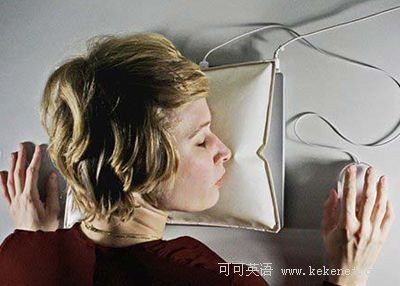
Just because you feel sleepy at some point in the afternoon doesn't actually mean you're sleep deprived. About eight hours after you wake up, the body's temperature dips a little, triggering that oh-so-annoying drowsiness after lunch and smack dab in the middle of your attempts to focus and get more done in the late afternoon。
其实下午犯困并不是意味着你缺觉。大概在醒后八小时,身体的体温会出现小幅回落,这会导致午餐之后昏昏沉沉的瞌睡,并且恰好这时你还想多做点事情,就更难集中注意力了。
Why am I not surprised the nap wins out? For many reasons:
为什么我对小睡排第一一点都不奇怪?这有下面几个原因:
Naps refresh you at a cellular level that-sorry, Soda-caffeine just can't do。
小睡会在细胞层面让你清醒,这些是一杯可乐或者咖啡无法完成的。
It's easier to over-sleep than you think. Biologically, the body doesn't necessarily need that extra sleep if you force yourself to sleep more at night. (And getting sufficient sleep doesn't mean your body won't go through the dip regardless; it's a natural, physiological phenomenon tied more to your circadian rhythm than to your previous night's sleep and potential sleep debt。)
你比你想象的更容易睡多。从生理上来说,即便你强迫自己在晚上睡得更多,但其实身体并不需要这些额外的睡眠。(而且,睡眠充足并不意味着你的身体就不会有回落的过程。这是一种天生的、生理的现象,主要受到生理节律而非前一晚睡得多少或者有没有缺觉的影响)。



















